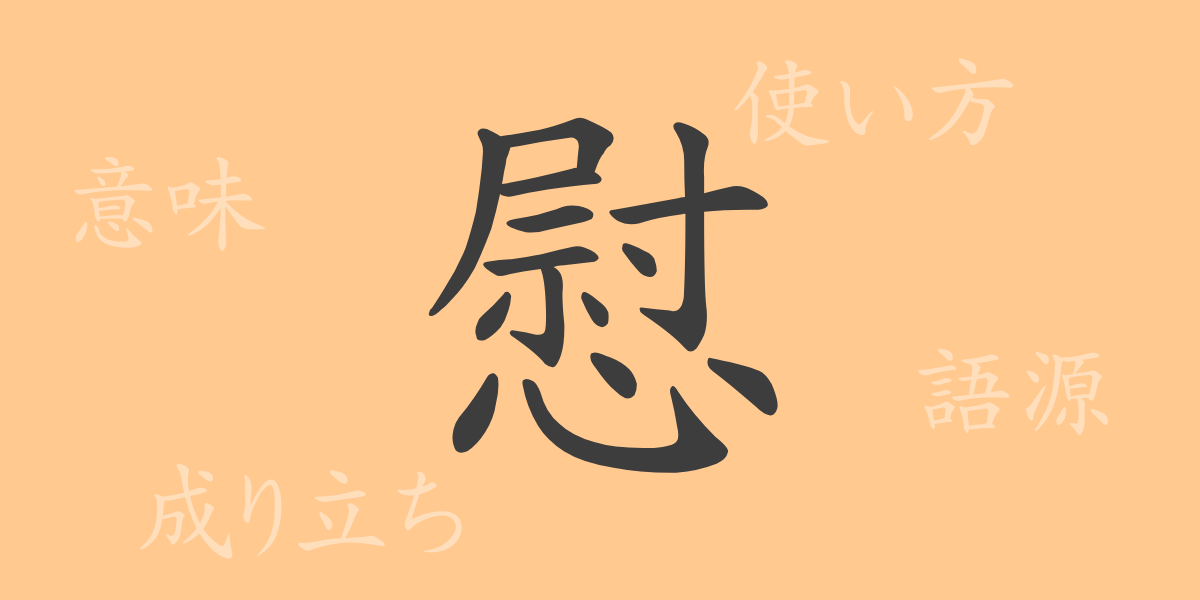“
The beauty of the Japanese language is reflected in its complex character system. In this article, we delve into the commonly used Kanji ‘慰’ (I), exploring its meanings, usage, and the phrases and idioms that enrich our understanding of Japanese depth. Join us on a journey into the world of ‘慰’.
Origins of 慰 (I)
The Kanji ‘慰’ is composed of ‘心’ (Mataha ‘忄’), symbolizing the heart, and ‘畏’, representing sound. Originally crafted in ancient China, ‘慰’ connoted soothing one’s heart. Over time, it has come to signify consoling or reassuring more actively.
Meaning and Usage of 慰
‘慰’ primarily denotes emotional comfort or consolation. It is used to alleviate sadness or suffering and to stabilize feelings. Examples include phrases like “”彼の言葉に慰められた”” (His words comforted me) and “”遠くからの便りが慰になる”” (News from afar is comforting).
Readings, Stroke Count, and Radical of 慰
Basic information about ‘慰’ includes:
- Readings: On’yomi is ‘I’, Kun’yomi are ‘Nagusa-meru’, ‘Nagusa-me’.
- Stroke Count: 15 strokes.
- Radical: 心部 (Rissinben).
Phrases, Idioms, and Proverbs Using 慰
Phrases and idioms containing ‘慰’ include:
- 慰安 (Ian): Providing peace of mind and body.
- 慰謝料 (Isyaryou): Compensation paid for emotional distress.
- 慰問 (Imon): Visiting and caring for the well-being of the ill or distant.
- ‘慰みになる’: Serving as a solace during times of hardship or loneliness.
Conclusion on 慰
The Kanji ‘慰’ beautifully represents the concept of soothing and reassuring the human spirit. In Japanese, it helps express human emotions through various idioms and phrases. Understanding the power of this character can expand the expressive range of the Japanese language. Let’s continue to explore the cultural and philosophical depths behind such characters as ‘慰’.
“

























